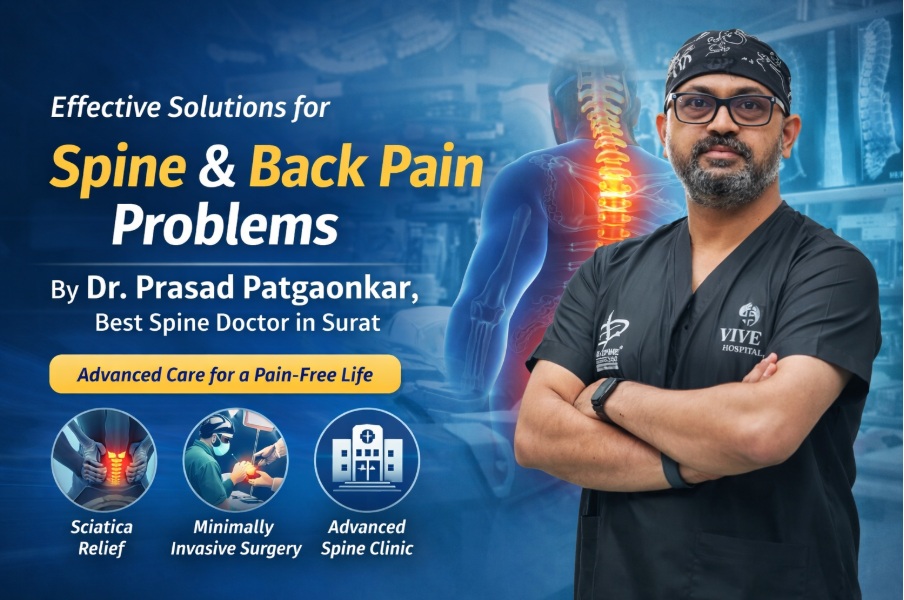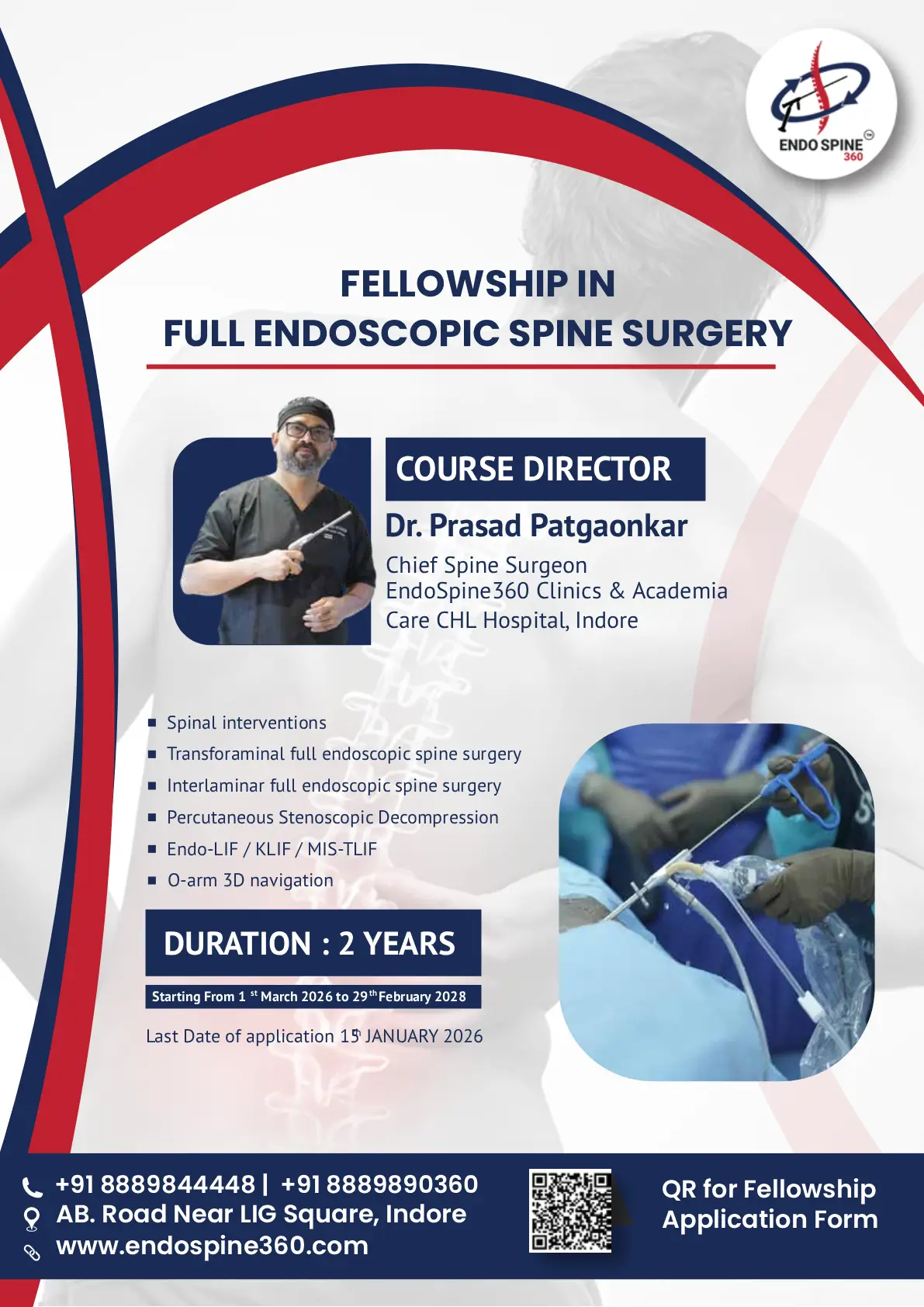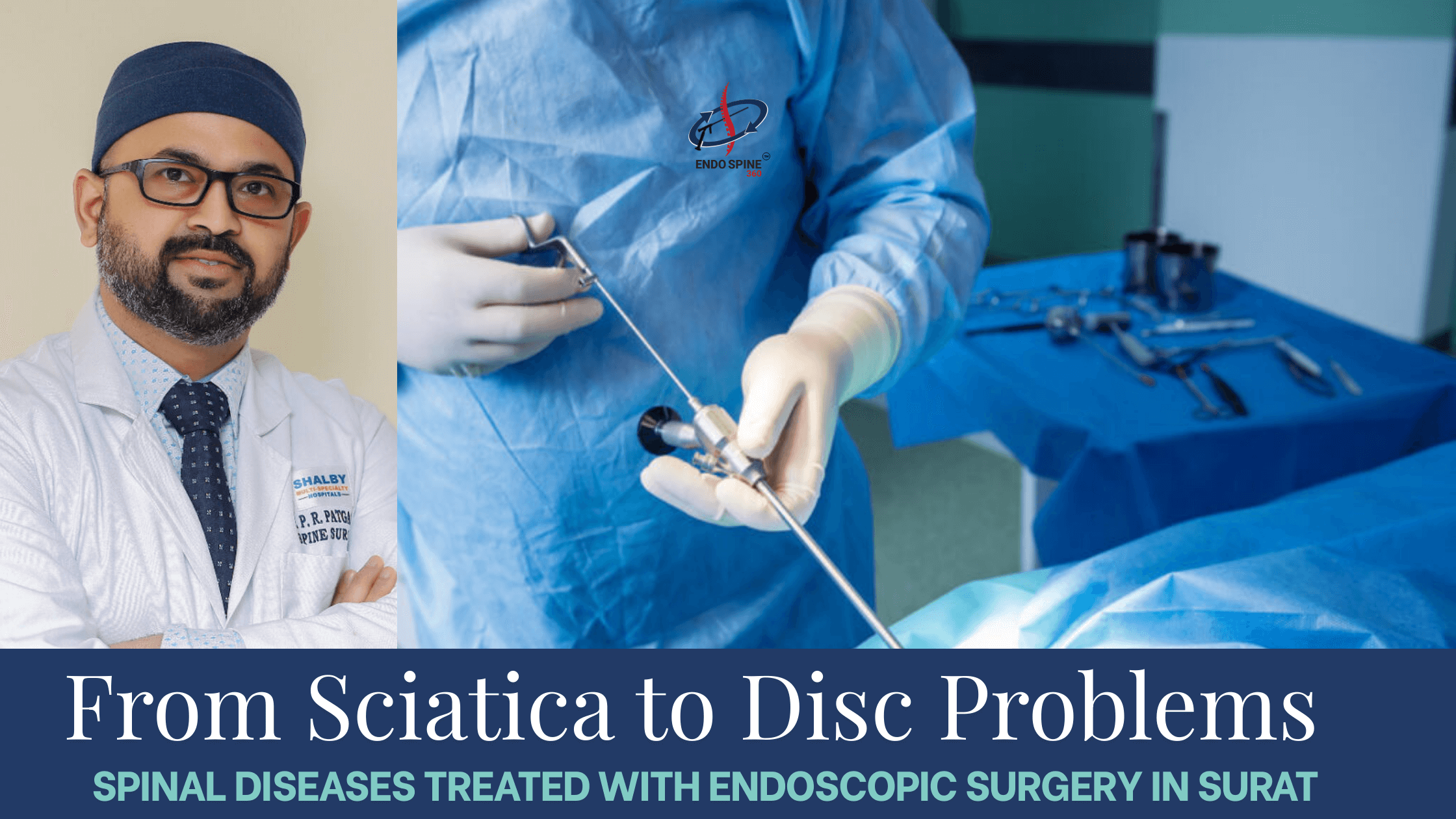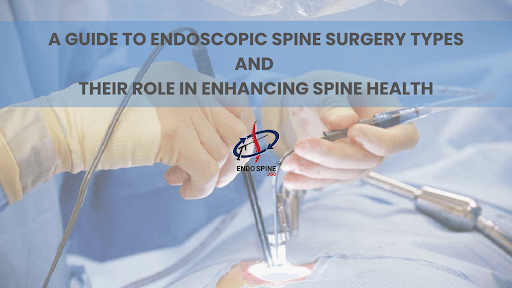A Guide to Endoscopic Spine Surgery Types and Their Role in Enhancing Spine Health
- Admin
Endoscopic spine surgery has become an invaluable approach in treating spine-related conditions, offering patients effective relief with minimal disruption. Unlike traditional open surgeries, endoscopic spine surgery uses small incisions and advanced technology to access the spine with precision, resulting in less pain, reduced recovery time, and fewer complications. This blog will cover the various types of endoscopic spine surgeries and how each type can play a critical role in enhancing spine health.
What is Endoscopic Spine Surgery?
Endoscopic spine surgery is a minimally invasive technique that allows surgeons to treat spine problems with a small camera, or endoscope, inserted through a small incision. Using real-time imaging, the surgeon can navigate specialized tools to target specific areas of the spine while preserving surrounding muscles and tissues.
This approach is ideal for many common spinal issues, such as herniated discs, spinal stenosis, and some types of degenerative disc diseases. Each type of endoscopic procedure offers unique benefits depending on the nature of the spinal problem.
Types of Endoscopic Spine Surgeries
Endoscopic Discectomy
Purpose: This procedure is designed to treat herniated or bulging discs that press on spinal nerves, causing back pain, leg pain, or sciatica.
Procedure: The surgeon removes the damaged portion of the disc through a small incision, relieving pressure on the nerves.
Benefits: Minimally invasive discectomy helps relieve pain and improve mobility with minimal tissue damage and faster recovery compared to traditional disc surgery.
Endoscopic Foraminotomy
Purpose: Endoscopic foraminotomy is used to treat spinal stenosis, where narrowed spaces in the spine compress the nerves.
Procedure: The surgeon enlarges the foramen (the passage where spinal nerves exit the spine) to relieve nerve compression.
Benefits: This surgery alleviates symptoms such as tingling, numbness, and pain in the arms or legs, with minimal scarring and reduced recovery time.
Endoscopic Rhizotomy
Purpose: This procedure is often recommended for patients with chronic back pain caused by facet joint issues.
Procedure: Using an endoscope, the surgeon severs or “ablates” the small nerves causing pain in the facet joints of the spine.
Benefits: Endoscopic rhizotomy can significantly reduce chronic pain, providing long-lasting relief for conditions like arthritis of the spine.
Endoscopic Laminotomy
Purpose: Often used to treat lumbar spinal stenosis, this surgery removes a small portion of the lamina (a part of the vertebral bone) to decompress nerves.
Procedure: Through a tiny incision, the surgeon accesses the lamina, shaving off a portion to relieve pressure on spinal nerves.
Benefits: Endoscopic laminotomy can alleviate lower back and leg pain, improving mobility and function without the need for a large incision.
Endoscopic Facet Debridement
Purpose: This technique is used to clean and smooth the facet joints, which can become rough or inflamed due to arthritis.
Procedure: The surgeon removes damaged tissue in the facet joints to reduce inflammation and relieve pain.
Benefits: Patients with facet joint pain experience relief with a less invasive approach that avoids open surgery, allowing for a quicker recovery.
Endoscopic Fusion Assistance
Purpose: In cases requiring spinal fusion, endoscopy can assist in preparing the spine for fusion by clearing away damaged tissue and aligning vertebrae.
Procedure: Using endoscopic guidance, surgeons can accurately place instrumentation and support structures.
Benefits: By incorporating endoscopy, spinal fusion becomes less invasive, with fewer complications and quicker recovery than traditional methods.
How Endoscopic Spine Surgery Enhances Spine Health
Endoscopic spine surgery has revolutionized the treatment of spinal issues by providing targeted relief with minimal impact on surrounding tissues. Here are some key ways these procedures support spine health:
Reduced Recovery Time: With smaller incisions and less tissue damage, endoscopic spine surgery typically allows patients to recover faster than traditional open spine surgery.
Lower Risk of Complications: The minimally invasive nature of endoscopic procedures reduces the risk of infection, scarring, and blood loss, leading to safer outcomes.
Preserved Muscle and Tissue Integrity: Unlike open surgery, endoscopic techniques avoid the need to cut through major muscles, preserving spinal stability and reducing the likelihood of post-surgical weakness.
Minimized Pain and Discomfort: With less trauma to the body, patients experience less post-operative pain and can return to daily activities sooner.
Improved Long-Term Spine Health: By precisely targeting problem areas, endoscopic spine surgery can reduce the risk of future issues and improve the overall stability and function of the spine.
Is Endoscopic Spine Surgery Right for You?
While endoscopic spine surgery is highly effective, it may not be suitable for all spinal conditions. Patients with specific issues, such as certain herniated discs, spinal stenosis, or facet joint pain, are often excellent candidates. However, more complex spine conditions may require alternative approaches. Consulting with an experienced spine specialist can help determine if endoscopic spine surgery is the best option for you.
Conclusion
Endoscopic spine surgery offers a variety of specialized procedures that can effectively address common spinal issues while enhancing overall spine health. These minimally invasive techniques are designed to provide long-lasting relief with shorter recovery times, lower risks, and preserved mobility. If you’re experiencing back pain or spine-related issues, consulting a spine specialist in Surat about endoscopic options may be your next step toward a pain-free, active lifestyle.
Search
Categories
Popular Tags
Recent Post
-
Consult the top spine surgeon for safe and effective spine treatment

Spine problems such as chronic back pain, neck stiffness, slipped disc...
Read more -
Effective solutions for spine and back pain problems by the best spine doctor in surat

Back pain and spine-related disorders have become increasingly common ...
Read more -
Full endoscopic fellowship 2026

Fellowship in full endoscopic spine surgery under Dr. Prasad Patgaonka...
Read more -
From sciatica to disc problems: spinal diseases treated with endoscopic surgery in surat

Spine pain can quietly affect every part of your life—from walking and...
Read more



